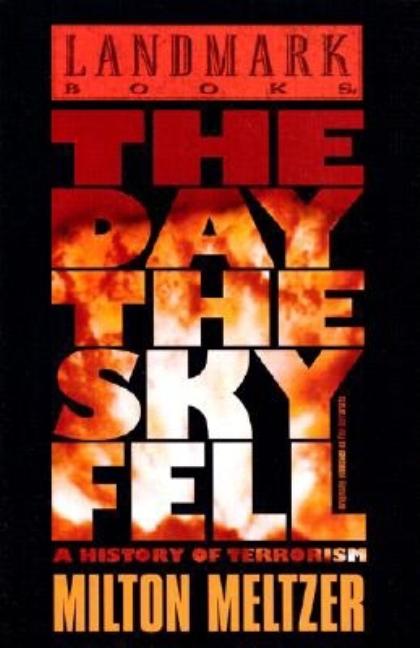Book Description
for The Day the Sky Fell by Milton Meltzer
From the Publisher
1. Like Christians and Jews, Muslims often disagree with each other about what behaviors their religion considers acceptable. The media has made it well known that the Koran teaches that the only permissible reason for war is self-defense and Muslims are to respect the “People of the Book,” Jews and Christians. With this in mind, what do you think perverted the belief system of Osama bin Laden? How can he use his religion to justify his actions when he has so obviously distorted its teachings? 2. Most Americans have little understanding of the Muslim religion, and most wrongly assume that all Arab Americans are Muslim. Meltzer tells us that most Arab Americans–54 percent–are Christian and that out of the 7 million Muslims living in America, 30 to 40 percent are African American, 25 to 30 percent South Asian American, and 25 to 30 percent Arab American. Do these statistics change your view of who Muslims are? Why is it important for us not to stereotype people? 3. There are a variety of ways to act to achieve a political goal. Terrorism is one choice, and it is a policy of intimidation, which often results from frustration and a failure to reach goals by normal, peaceful means. What other methods could terrorists use to achieve their goals? Why do they feel violence is the only way? 4. Anarchists believe that it is “possible to have a harmonious society without any kind of rule from above” (ch. 7, page 40). They believe that freedom of the individual is all-important and the government imposes barriers to that freedom. However, anarchism has never been tried in any nation, so there is no model for measuring success or failure. Based on what you know about human nature, do you think society could function without rules? 5. Meltzer cites the following formula for a terrorist revolutionary, written in 1869: He must break ties with the civil order and with the ethics of the world; he is an enemy of the world, and if he continues to live in it, his goal must be to destroy it; every day he must be prepared to die and to kill with his own hands; day and night he must have a single thought and a single purpose, merciless destruction (page 45). How does this relate to what you know about bin Laden and his band of terrorists? How do you think people come to believe in something so strongly that they are willing to die for that belief? Do you have any belief you are willing to die for? 6. Meltzer traces the origins of the revolutions in Russia, Ireland, Italy, Spain, and America–all motivated by the desire for reform. When the revolutionaries couldn’t bring about reform peacefully, they resorted to terror. Political leaders were assassinated in hopes that the government would collapse and that positive changes would be made. When does the end justify the means? And who has the right to make that decision? 7. In the 1890s a French commentator said, “Every [political] party has its criminals and its fools, because every party has its men”(page 84). What does this mean to you? How can you apply it to the twenty-first century? 8. Meltzer states, “The Ku Klux Klan was terrorism, American-style” (page 92). Do you agree or disagree with this statement, and why? Can you support your opinion with facts? 9. Meltzer describes political unrest throughout the world in the mid- to late 1800s–in Italy, Spain, Ireland, Russia, and the Middle East. Does knowing the history of these conflicts give you a clearer understanding of the current unrest in some of these areas? Do terrorist attacks seem reasonable in light of history? Why or why not? 10. In 1969 Carlos Marighella published Mini-Manual for Urban Guerrilla Warfare, which called for violent action and destruction. It is a how-to book on sabotage, robbery, kidnapping, execution, and other equally vile behavior. Today, terrorists only have to go to the Internet to find out ways to build bombs and destroy lives. Do you think legislation should be passed to stop the publication of such material? What controls, if any, should be placed on the Internet to limit violent Web sites? 11. One form of terrorism is governments’ setting out to destroy groups of their citizens. Such mass terror has been used for centuries against people formerly in power, those who do not agree with current policies, or those who, for whatever reason, are seen as misfits. What relationship do you see between a government’s treatment of misfits, dissenters, and former leaders and whether it treats other countries with respect? 12. The September 11, 2001, terrorist attack against the United States has prompted the United Nations to “draft a treaty that would harmonize anti-terrorism laws worldwide and commit signatories to crack down on terrorists. The aim is to provide legal measures for member states to deal with terrorist bombings, hostage-taking, airplane or ship hijacking, terrorism financing, and protection of nuclear, biological, and chemical materials” (pages 243—244). After years of terrorism, why do you think it took the events of September 11 to motivate the drafting of worldwide laws against terrorists?
Publisher description retrieved from Google Books.


